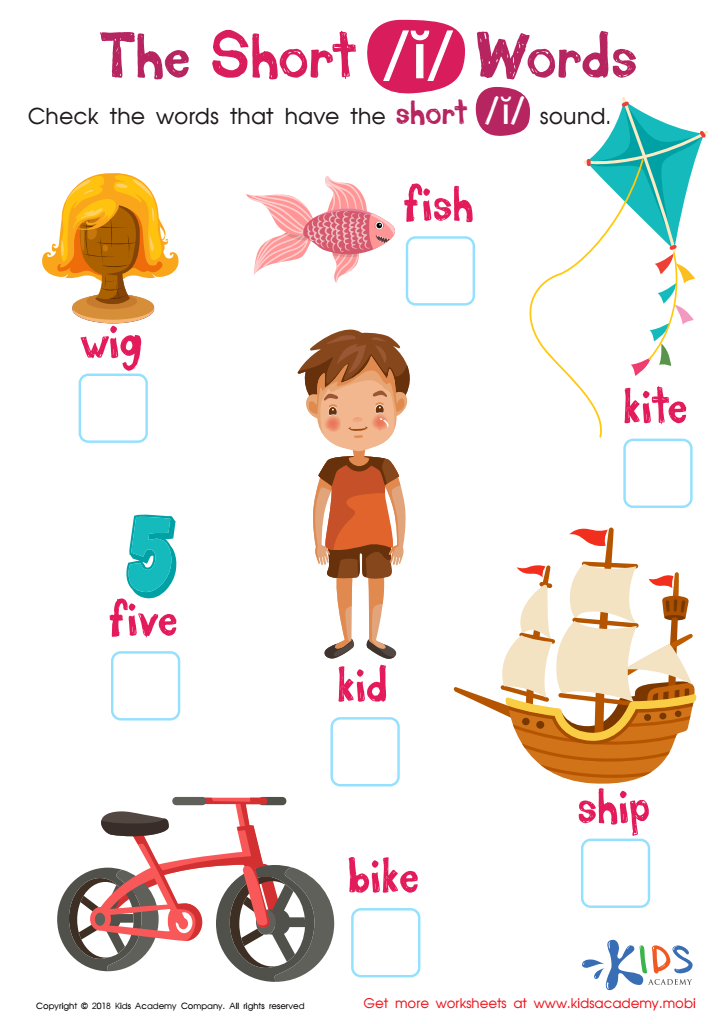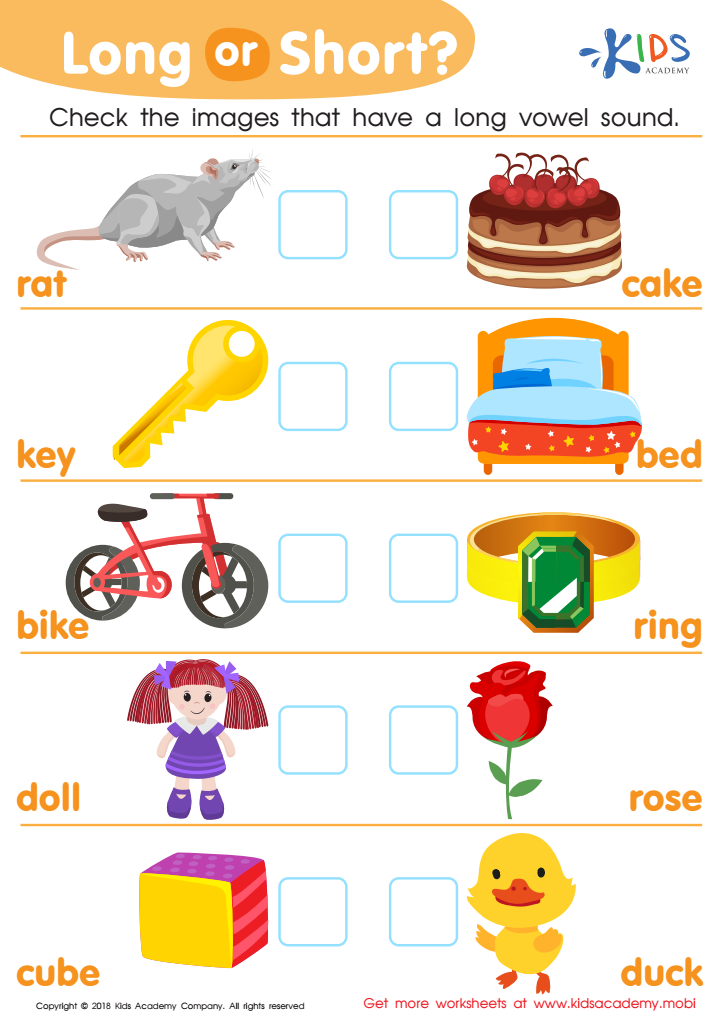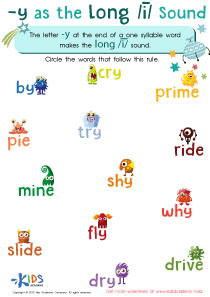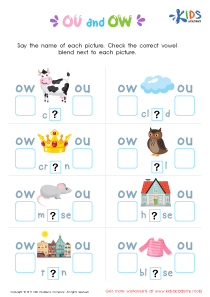Phonics Skills Normal Short Vowels Worksheets for Ages 4-6
5 filtered results
-
From - To
Introduce young learners to the fundamentals of reading with our Phonics Skills Normal Short Vowels Worksheets, designed specifically for ages 4-6. These engaging, age-appropriate worksheets focus on helping children recognize and understand short vowel sounds, a crucial step in early literacy. Each worksheet features fun activities, colorful illustrations, and exercises tailored to captivate and educate young minds. With this resource, children will develop phonemic awareness, improve their reading skills, and gain confidence in their ability to decode words. Perfect for at-home learning or classroom use, these worksheets provide a solid foundation in phonics to support your child's educational journey.


The Short I Words Reading Worksheet


Short Vowels /e/, /i/, and /u/ Worksheet


Long or Short Reading Worksheet


Long and Short Vowel Sentences: Assessment Worksheet


Long and Short E Worksheet
Phonics skills with a focus on normal short vowels are crucial for children aged 4-6 as they form the foundation of early reading and writing abilities. During these formative years, understanding short vowel sounds enables children to decode words more efficiently, paving the way for successful literacy development. Short vowels are common in many simple words, making them frequent in early reading books. Mastery of these sounds helps children recognize patterns in words, boosting their ability to read independently and confidently.
Teachers and parents should emphasize phonics because it equips children with tools to segment sounds (phonemic awareness) and blend them together to read words (decoding). For instance, understanding that the short "a" sound appears in words like "cat" and "hat" allows children to apply this knowledge across multiple words, enhancing their reading fluency and comprehension.
Additionally, strong phonics skills positively impact spelling. When children understand the relationships between letters and sounds, they can more accurately spell simple words, which reinforces their writing skills. Early success in reading and writing boosts self-esteem, encouraging children to become enthusiastic about learning.
Overall, attention to phonics with a focus on short vowels during ages 4-6 helps cultivate a strong literacy foundation, essential for academic success across all subjects.
 Assign to My Students
Assign to My Students











